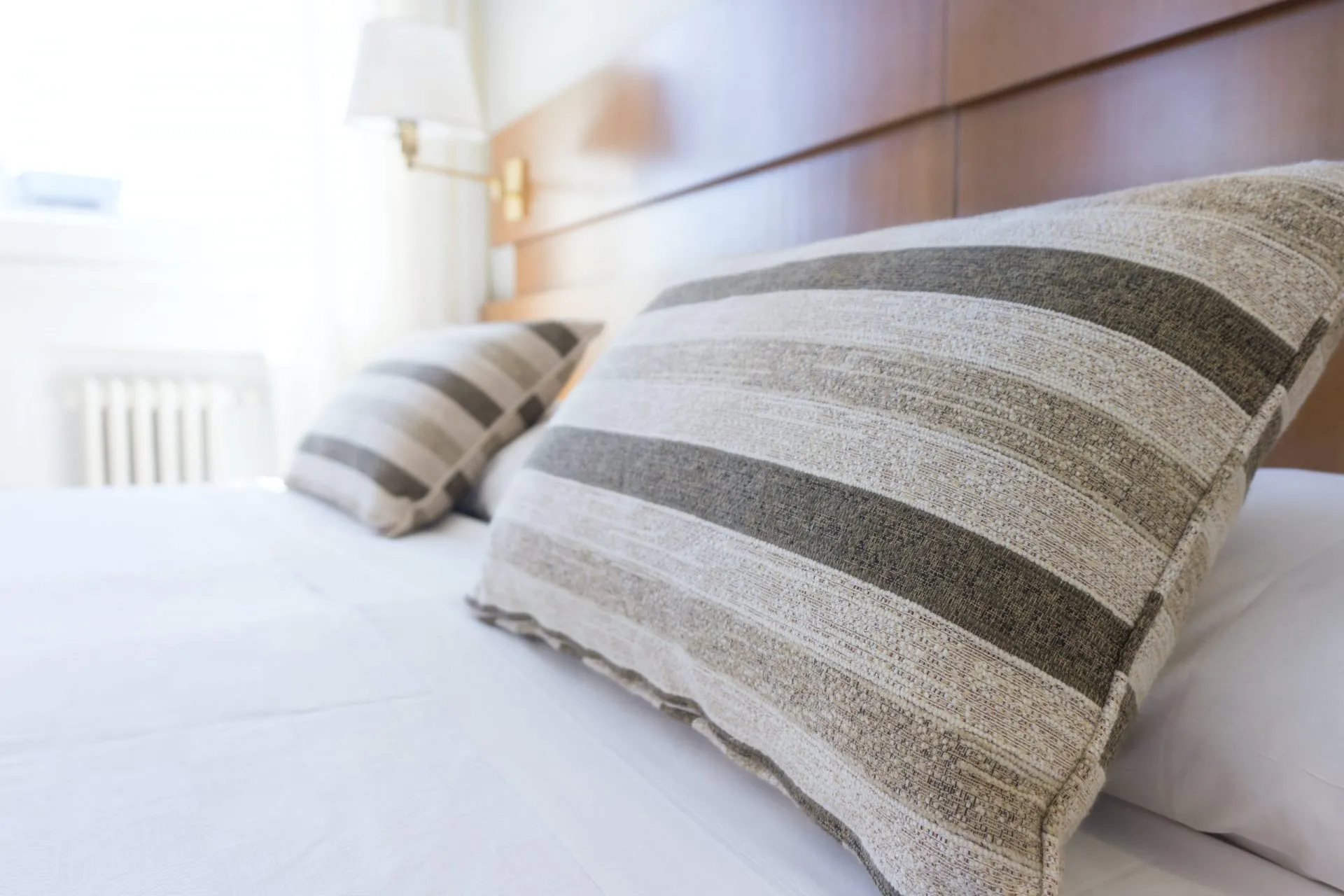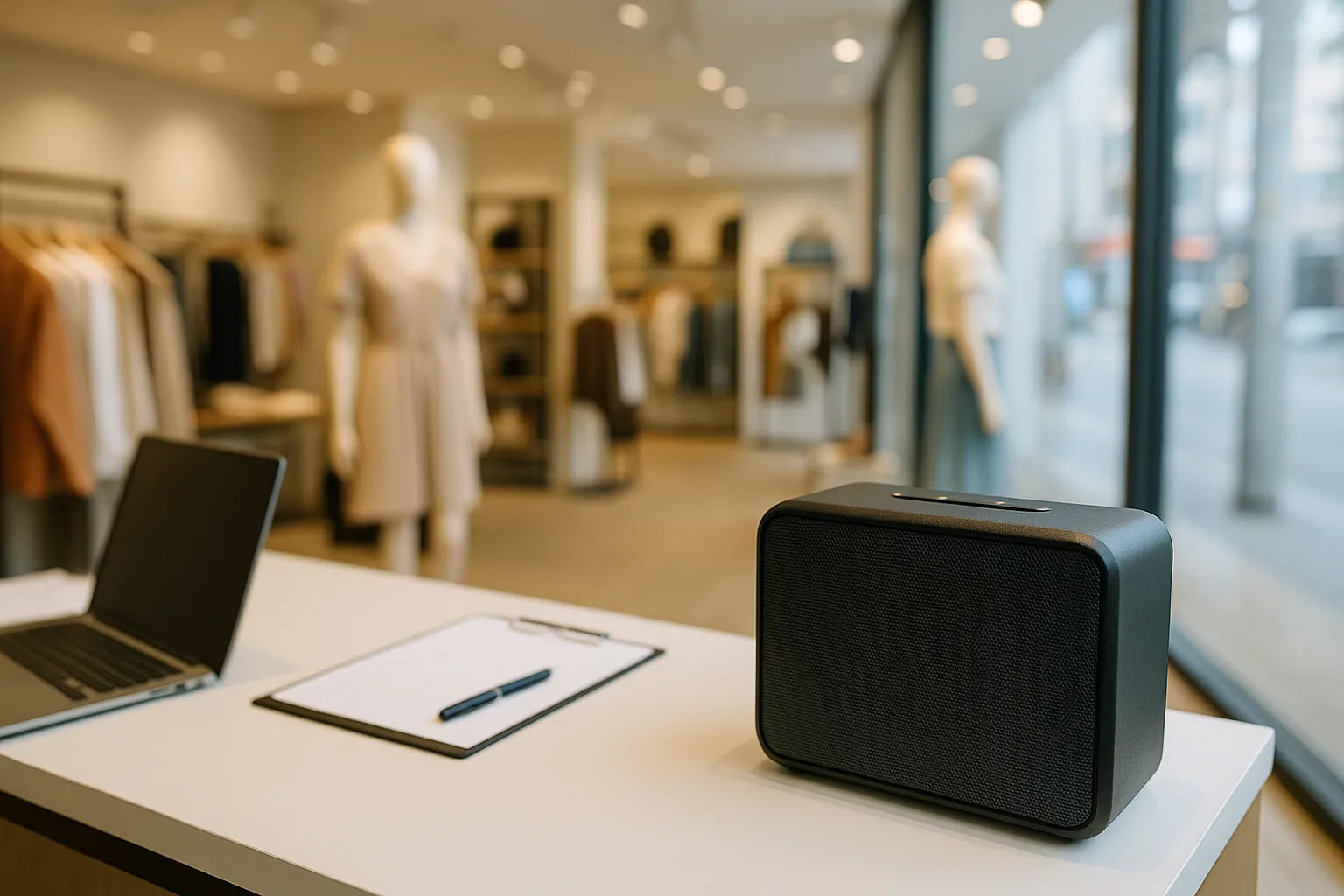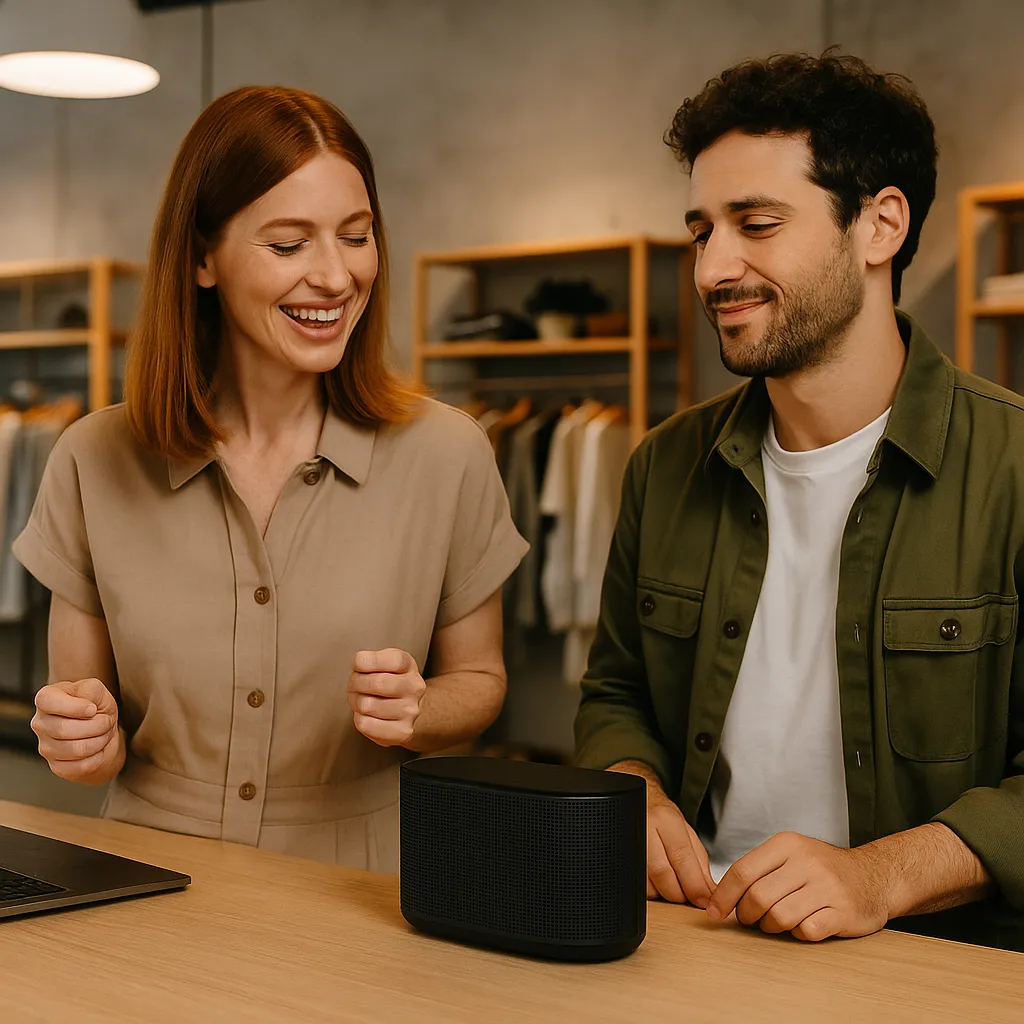Today we talk about how important music is for a hotel. Music is a powerful tool capable of transforming the atmosphere of an environment, influencing emotions, and creating a memorable experience.
In a highly competitive industry like luxury hotels, the bond between music and guests becomes crucial for achieving positive results.
According to an international study (Milliman, 1982;1986), 31% of guests who enjoy pleasant music at a hotel will return, 21% will recommend it to others, and 14% will increase their spending.
an environment with unsuitable music can lead 44% of guests to leave earlier than planned
In this article, we will explore the importance of music for hotels, examining how the right soundtrack can positively influence the customer experience. We’ll discover why many star-rated hotels still overlook music, how the digital revolution has changed the way music is enjoyed in spaces, and which aspects are crucial for creating a tailored music service. Finally, we’ll see how customizing the playlist can be key to standing out in the vast hotel market and creating an emotional connection with guests.
The Importance of Music in Luxury Hotels
The sound environment is one of the key elements that defines a luxury hotel. Like lighting, decor, and impeccable service, music shapes the atmosphere and leaves a lasting impression on guests’ memories. However, many star-rated hotels do not place enough importance on selecting the right soundtrack and investing in music. But why is this?
The Digital Revolution and the New Musical Standard
With platforms like iTunes, iPod, YouTube, and Spotify, the way we listen to music has changed dramatically. Today, active listening has become predominant over passive listening, and guests are increasingly demanding about the sound environment around them.
In hotels (even luxury ones), music has taken on a central role, no longer limited to being just a component of the setting but becoming an element capable of defining the place and influencing guests’ overall experience.
But beware: you cannot use iTunes, iPod, YouTube, and Spotify to play music in your hotel spaces, as these tools are intended exclusively for private use.
Creating a Unique Sound Experience
Choosing the right soundtrack cannot be left to chance. It’s essential to conduct an in-depth analysis of the hotel, assess the acoustics and audio technologies in place, and, above all, understand the spaces as a whole.
Only in this way can you create a playlist aligned with the brand’s identity, reflecting its story and distinctive features.
Building an Emotional Connection with Guests through Hotel Music
A well-designed and personalized sound environment enables you to create an emotional connection with guests. Music can evoke positive emotions, relaxation, and well-being, enhancing the overall guest experience.
Its influence extends to even the most intimate moments of guests, transmitting information to the brain unconsciously.
For instance, a study conducted in a restaurant found that relaxing music led customers to dine for a longer time compared to those exposed to fast music or no music at all. Similarly, slow music encouraged supermarket customers to linger longer. [You can learn more about this topic by reading this article: “The Influence of Music at Restaurants on Culinary Choices: Truth or Myth?“]
Listening volume is another crucial element. When music is perceived as too loud by customers, they tend to spend less time in the environment. On the other hand, background music can mask unwanted noises, like clanging pots and pans, helping to create a pleasant and inviting atmosphere for guests.
Looking at the issue from a theoretical perspective, data showing guests spending more time when slow music is played can be linked to the approach/avoidance model proposed by Mehrabian and Russell. According to this model, responses to a physical environment can be divided into approach and avoidance behaviors. Approach behaviors include actions like physically moving closer to something, engaging in conversation with others, or participating in activities within the environment. In contrast, avoidance behaviors imply a desire to leave the environment or avoid engaging with it.
In this context, background music can play a fundamental role in creating an approach experience for guests, inviting them to explore and enjoy the hotel environment. This is why selecting the right soundtrack, tailored to the brand style and guest needs, becomes essential for ensuring a positive and engaging experience.
Customizing the Playlist for Your Hotel
Using automatic, impersonal playlists can backfire. Relying on a music provider that does not consider the hotel’s specificities can lead to the broadcast of music that doesn’t align with the brand’s identity or the hotel’s spaces.
The key to success is to customize the playlist, tailoring it to your hotel’s style and characteristics, creating a unique experience for guests.
Conclusion
Music in a hotel is much more than just background sound. It is a key element in creating a unique atmosphere capable of positively influencing guest behavior and building an emotional bond with them.
Luxury hotels that want to stand out and offer an unforgettable experience to their clients cannot overlook the importance of music. Customizing the soundtrack according to the brand identity and the hotel spaces is a fundamental step towards success.
An innovative and cutting-edge solution to guarantee an excellent sound experience for guests is Moosbox.
Moosbox is a professional music branding and sound design service fully licensed (meaning the broadcast and related rights licenses are included in the subscription) specifically designed for hotels. With cutting-edge technical expertise and a deep understanding of the hospitality sector, Moosbox offers a personalized service that goes far beyond a simple playlist.
With Moosbox, hotels can benefit from an in-depth analysis of the environment and brand specifics, ensuring a tailored soundtrack for every moment of the day and every corner of the hotel.
The goal is to create a unique sound-musical narrative that seamlessly integrates with the identity of the place and creates an engaging experience for guests.




